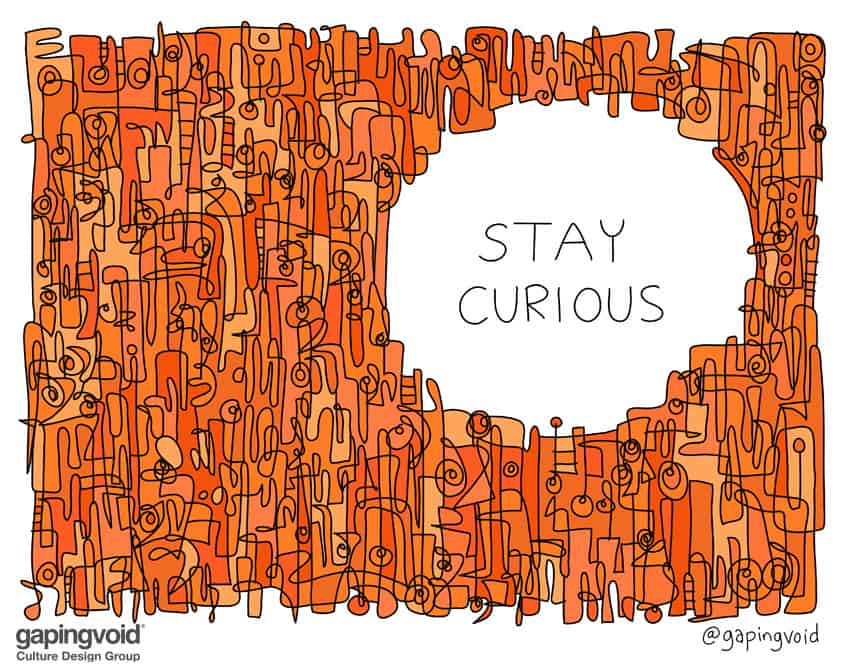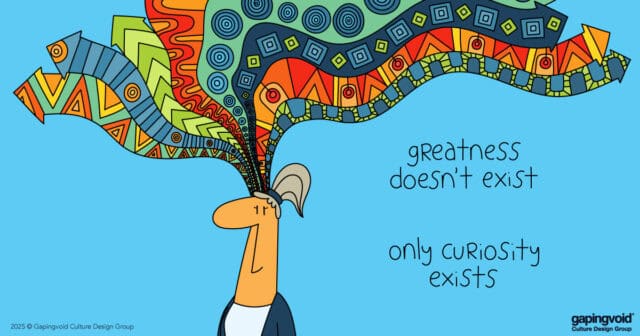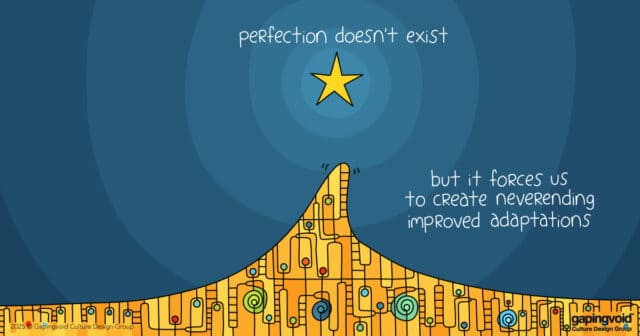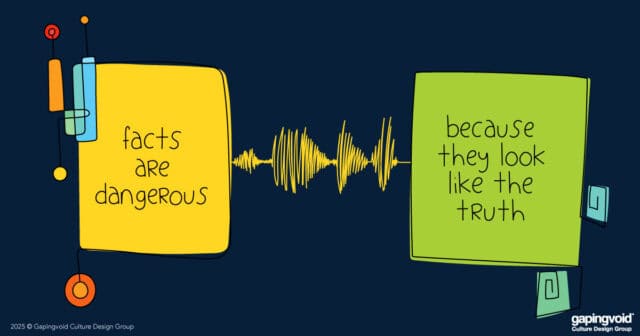“Curiosity is, in great and generous minds, the first passion and the last.”
– William Samuel Johnson
Curiosity used to be thought of as a pretty innocuous thing. Whether you were or weren’t, wasn’t a significant issue. In the pre-internet era, being curious was also a pretty taxing thing. Information wasn’t free or readily available. Scratching the itch required a trip to the library or the bookstore, courthouse, etc.
With all of mankind’s information available at your fingertips, almost anything is knowable. It is something that we have quickly taken for granted. So, being that we are now able to feed our curiosity at any time and in any amount, what is it all for?
We did a project a while ago for a major telecom who had an engagement problem with learning and development. People just weren’t signing up for courses, etc. We solved the problem pretty simply by creating an approach to stoke people’s curiosity. To understand what folks wanted to know, and simply scratching the itch of those who were the curious sort. It led to a three-fold increase in engagement.
One of our beliefs is that curiosity is an essential human quality. It’s really a mindset of people who want to do great work, and have an impact. There are lots of studies, and this HBR article says it pretty plainly. Your Curiosity Quotient (CQ) is more important than IQ.
Curiosity isn’t cute and gratuitous if you want your organization to scale, you must stimulate the collective CQ.




